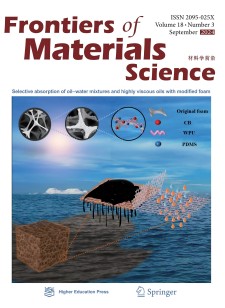The antibacterial and drug-loaded bilayer poly(ε-caprolactone) fibrous membrane with a shish-kebab structure
Abstract
Electrospinning has been widely used in the field of biomedical materials characterized with high porosity and good breathability as well as similarity to the natural extracellular matrix. This study employs the microsol-electrospinning technology combined with the self-induced crystallization method to fabricate the functionalized bilayer poly(ε-caprolactone) (PCL) fibrous membrane with a shish-kebab (SK) structure. The outer layer consists of the antibacterial SK-structured fibrous membrane showing favorable mechanical properties and notable inhibitory effects on the growth of E. coli and S. aureus, while salvianic acid A sodium (SAS) is encapsulated in the inner core–shell and SK-structured PCL fibrous membrane, achieving the controlled and sustained release of SAS. Moreover, good biocompatibility and enhanced cell adhesion of this membrane are also revealed. This antibacterial and drug-loaded bilayer PCL fibrous membrane with a SK structure demonstrates superior mechanical characteristics, exceptional antibacterial properties, and notable biocompatibility, suggesting its favorable outlook for future development in the area of tissue engineering.

 求助内容:
求助内容: 应助结果提醒方式:
应助结果提醒方式:


